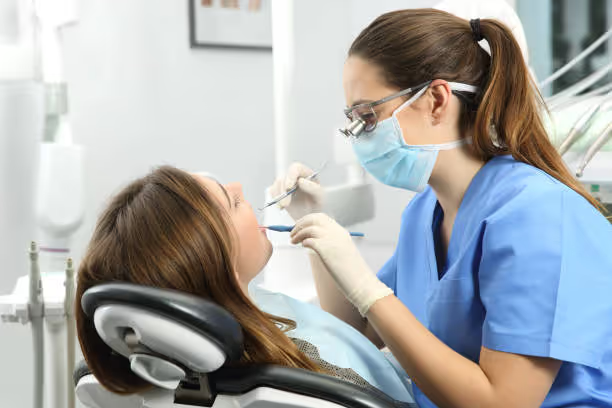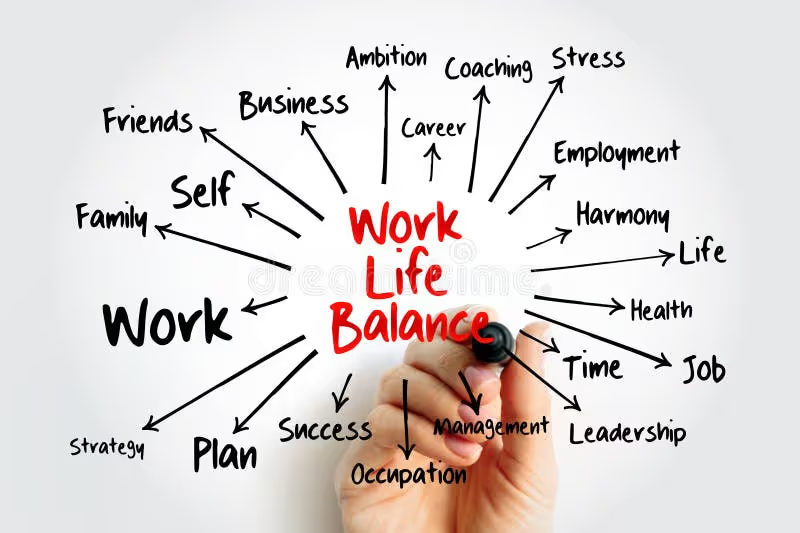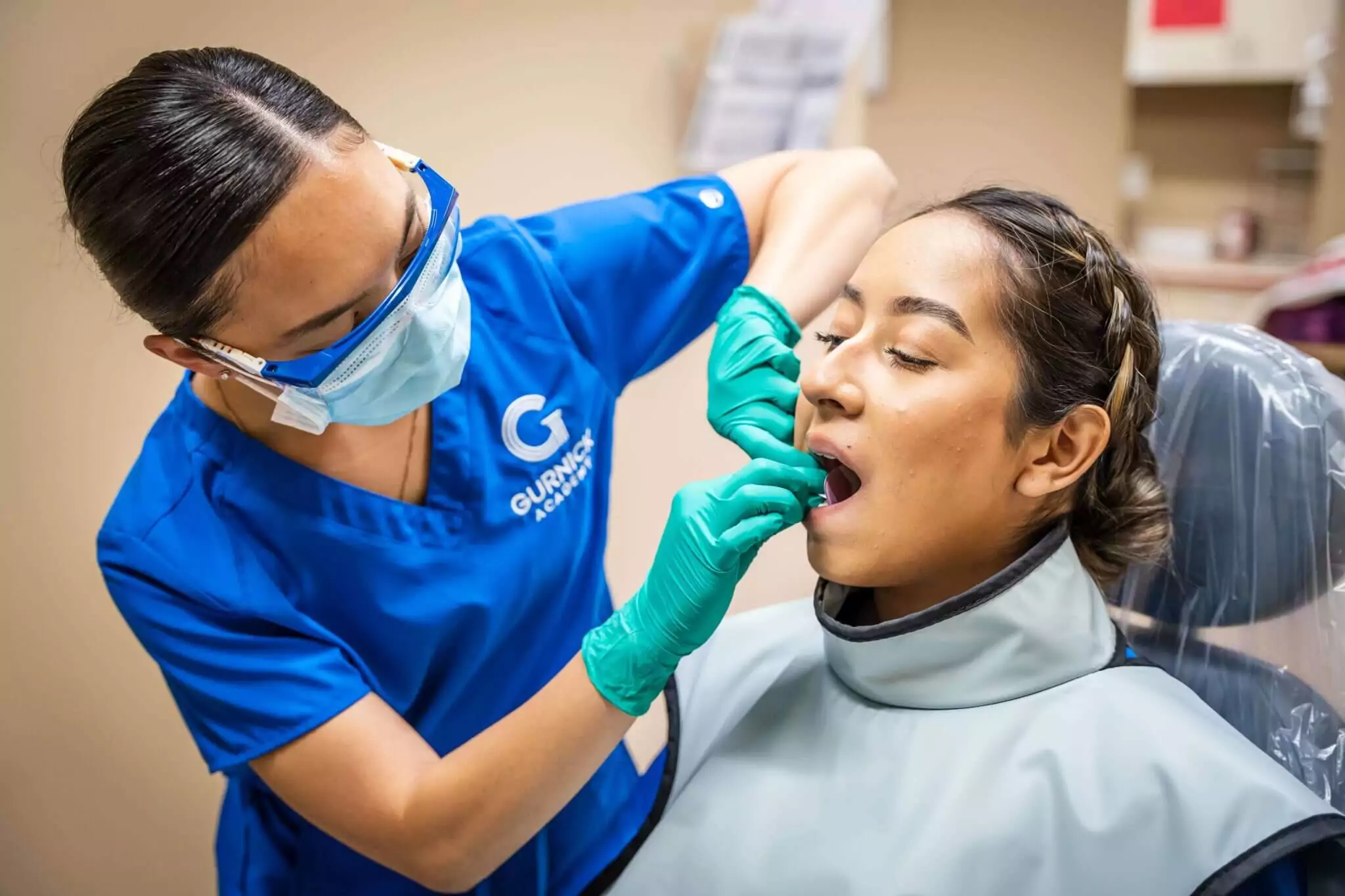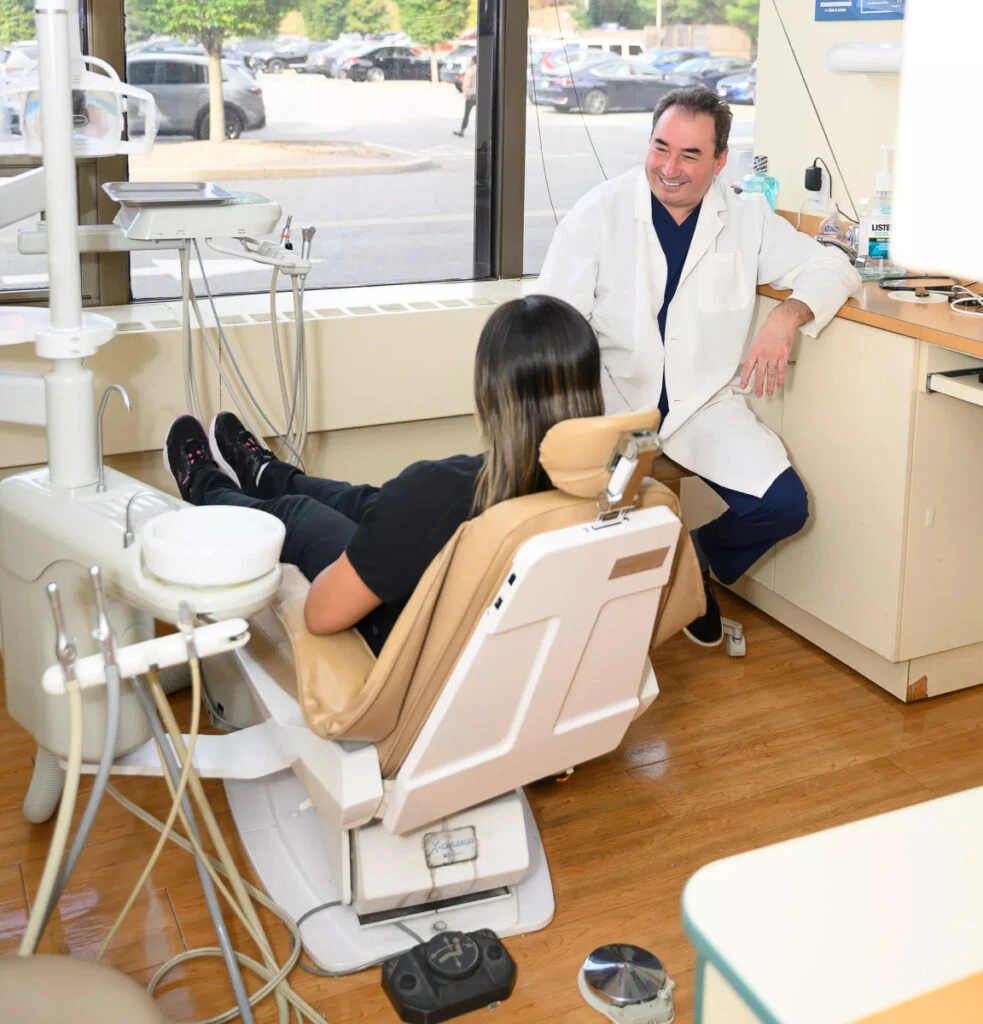Table of contents
Get Started with Kwikly
Get the latest updates, insights, and exclusive content delivered straight to your inbox.
Key Things to Remember
- Dental hygienists focus on keeping teeth clean and teaching people how to take care of their mouths, while dentists handle the more complex stuff like surgeries and treatment plans.
- You don't need as much school to become a dental hygienist compared to a dentist, who has to go through four years of dental school on top of their regular degree.
- Both jobs are growing, but dental hygienists are looking at better growth numbers - about 6% compared to 3% for dentists. People are getting more serious about preventing problems before they start.
What These Jobs Actually Are

Dental hygienists and dentists work together, but they do different things. Dentists and dental hygienists have distinct but complementary roles within the dental team, each contributing unique skills to patient care. They often work alongside each other to provide comprehensive dental care. If you’re a dental hygienist, you’re the person who’s all about preventive care and oral hygiene. You’re cleaning teeth, checking for problems, and teaching people how to brush and floss properly. You also educate patients on oral health to help them prevent future issues. You’re basically the first line of defense against mouth problems. In dentistry, both professions are essential for maintaining and improving oral health.
Dentists are the ones who step in when things get complicated. They’re diagnosing issues, doing surgeries, filling cavities, and putting together treatment plans. They handle the bigger picture stuff that goes beyond just keeping things clean and help ensure gums healthy as part of maintaining overall oral health.
Both jobs matter, and they work together to make sure people’s mouths stay healthy. Dentists and dental hygienists each play an important role in providing effective oral healthcare. By collaborating, dental hygienists and dentists contribute significantly to patients’ oral healthcare. Hygienists keep things running smoothly day-to-day, while dentists handle the heavy lifting when problems pop up.
Getting There: School and Training
If you want to be a dental hygienist, you’re looking at getting a degree from a program that’s set up for hygienists. You can go for an associate or bachelor’s degree, depending on what you want to do later. You’ll learn the theory, get hands-on practice, and then take some tests to get your license.
Dentists have to go through more school. You need a bachelor’s degree first, usually in a science-related field such as chemistry or biology, before you can apply to dental schools. At dental schools, you complete four more years of advanced training to earn your doctorate, typically a doctor of dental surgery (DDS) degree or its equivalent. This extensive education and training qualifies a dentist as a medical professional, capable of diagnosing and treating complex oral health issues. It’s a longer road, but it opens up more doors for complex treatments and procedures.
The good news for hygienists is that you can keep going to school later if you want. Getting a master’s degree can set you up for teaching or public health work, so you’re not stuck in one path forever. Both dentists and hygienists are highly trained professionals dedicated to providing quality oral care.
What You'll Actually Do
As a dental hygienist, your day is all about preventive care for teeth and gums. You’re:
- Cleaning teeth
- Performing dental cleaning
- Removing plaque from teeth and gums
- Checking gums
- Looking for decay
- Looking for signs of oral diseases
- Teaching patients how to take better care of their mouths, including proper oral hygiene
- Guiding patients in oral health practices to prevent dental issues
You’re using different tools and techniques to keep people’s mouths healthy, and you’re often the one who spots oral health problems early. These activities help patients maintain optimal oral health.
Dentists have a bigger scope. They’re diagnosing problems, doing surgeries, filling cavities, pulling teeth, and creating treatment plans. If something’s wrong, they’re the ones who figure out how to fix it.
It’s a good setup because hygienists catch oral health problems before they get bad, and dentists handle the fixes when things need more serious attention. Together, their combined efforts help patients achieve optimal oral health.
Specific Things You'll Do
A registered dental hygienist (RDH) gets to do some pretty interesting stuff. You might:
- Perform routine cleaning using special instruments to remove stains, plaque, and tartar from each tooth
- Put together treatment plans based on what you see during cleanings
- Take X-rays to help dentists see what’s going on
- Apply sealants to protect back teeth
- Do screenings for cavity, tooth decay, periodontal disease, gum problems, and even oral cancer, looking for signs of disease
In some states, you can even give local anesthesia to make procedures more comfortable for patients.
Dentists do the more complex procedures - fillings, extractions, root canals, dental implants. They are responsible for treating gum disease and can treat periodontal disease with specialized procedures. Dentists also have the authority to prescribe medication as part of comprehensive patient care. Some hygienists can do certain restorative work depending on where they practice, but dentists typically handle the intricate stuff.
Hygienists need strong skills in cleaning, scaling, polishing, and understanding dental health to succeed in their role. They also play a key part in caring for each tooth and preventing tooth decay. Hygienists also help in treating gum diseases by evaluating, preventing, and managing gum-related issues.
When hygienists and dentists work together, patients get everything from routine cleanings to major procedures. It’s a team approach that covers all the bases.
Where You'll Work
Both hygienists and dentists have options when it comes to where they work. As a hygienist, you might work in:
- Private dental offices
- Community clinics
- Hospitals
- Schools
Dental assistants are also an important part of the dental team in these settings, supporting both hygienists and dentists during procedures and daily operations.
You might also get into public health, working on community programs that help people who might not otherwise get dental care.
Some hygienists move into teaching, working at colleges and universities to train the next generation. Others go into administration or research, contributing to new developments in oral health care. graduates
Dentists mostly work in private practices, but you’ll also find them in hospitals, academic settings, and public health programs. They’re focused on the more complex diagnoses and treatments, but the variety of settings means you can find an environment that fits your style.
The Money Side of Things
Let's be honest - salary matters when you're choosing a career. Dental hygienists make less than dentists, with an average of around $87,530 per year in the U.S. It varies based on where you work, how much experience you have, and what type of practice you're in. Despite earning less, many hygienists are happy with their pay and find it satisfying.
Dentists make significantly more, averaging around $170,910 annually. The higher salary reflects all that extra education and training, plus the complexity of what they do. It's a substantial difference that shows the different levels of responsibility and expertise involved.
Money isn't everything, but it's definitely something to consider when you're planning your career path.
Job Growth and Opportunities
The future looks good for both careers. The job outlook for dental hygienists and dentists remains positive, with dental hygienists seeing 6% job growth, driven by people focusing more on prevention and the fact that people are keeping their natural teeth longer.
Dentists have a 3% projected growth rate, which is slower but still steady. The job outlook for dentists is stable, as there’s always going to be demand for their expertise in handling complex problems.
For hygienists specifically, employment is expected to rise by 9% from 2023 to 2033, which beats a lot of other professions. They’re expecting about 16,400 new job openings each year as people retire or change careers.
If you’re looking for a career with good prospects, dental health is a solid choice, offering opportunities to work as highly trained professionals in a growing field.
Which One Should You Choose?

Choosing between being a hygienist or a dentist comes down to understanding what each job involves and what you want from your career. If you like the idea of focusing on prevention, education, and routine care, hygienist work might be your thing. You’d see a hygienist if you have bleeding gums or need advice on taking better care of your teeth. When choosing between a hygienist and a dentist, consider your specific needs to ensure you get the right care. Regular visits to both professionals are important for maintaining optimal oral health and catching potential issues early.
If you’re drawn to complex problem-solving, surgery, and creating comprehensive treatment plans, dentist work might be more your speed. You’d see a dentist for persistent pain, procedures, dental issues like cavities or gum disease, or cosmetic work.
Both are essential for keeping people’s mouths healthy and addressing oral health issues. Understanding the differences between these two roles helps you make smart decisions about your own care and career path. To benefit from the expertise of both, consider scheduling a dental appointment and make your oral health a priority.
Work-Life Balance and Satisfaction
How you feel about your job matters just as much as what you earn. Dental hygienists often have good work-life balance, with about 40% working part-time. This flexibility is a big reason why many hygienists are satisfied with their careers - around 61.5% are content with their income.
Even though about 70.75% of hygienists say they're satisfied with their career choice, it's not all smooth sailing. Over 60% often feel pressed for time, which can create stress. But positive interactions with patients make up for a lot - 72% of hygienists say this is a major source of job satisfaction.
Understanding these trade-offs helps you figure out if this kind of work fits with what you want from your career and lifestyle.
How Kwikly Helps Dental Professionals

Kwikly works with dental professionals, including both hygienists and dentists. We're the leading dental staffing platform in the U.S., and we connect professionals with job opportunities that fit their schedules. If you want flexibility to balance work with your personal life, this kind of arrangement can be perfect.
We work with major dental organizations like Heartland Dental and Smile Brands, matching trained professionals with offices that need experienced staff. For multi-location organizations, we offer enterprise solutions that make staffing management easier, with reporting and insights to track what matters.
With features like same-day pay through Kwikly Wallet and a 100% satisfaction guarantee on shifts, we're here to support dental professionals and the offices they work with. By connecting professionals with offices that need help, we're helping maintain high standards in oral health care.
Bottom Line
Understanding the difference between dental hygienists and dentists helps you make better decisions about your oral health care and potential career path. Hygienists focus on prevention, dentists handle complex treatments, and both are essential for keeping your mouth healthy.
Whether you're thinking about your next dental visit or considering a career change, remember that these professionals work together to give you the best possible care. Stay informed, stay proactive, and you'll keep that healthy smile for years to come.
Questions People Ask
What's the main difference between dental hygienists and dentists?
Hygienists are all about prevention and routine cleanings, while dentists diagnose and treat complex problems, including surgeries. They work together to cover all aspects of oral health care.
What do you need to study to become a dental hygienist?
You need to complete an accredited dental hygiene program and pass the required national and state exams to get your license. This education and certification are what allow you to practice.
How much do dental hygienists and dentists make?
Dental hygienists average about $87,530 per year, while dentists make around $170,910 annually.
Are these good career choices for the future?
Yes, both have good growth prospects. Dental hygienists are looking at 6% growth, while dentists have 3% projected growth. The hygienist field is particularly strong right now.
How does Kwikly help dental professionals?
Kwikly gives dental professionals access to flexible job opportunities with same-day pay and a satisfaction guarantee on all shifts. It's a way to work on your own terms while still getting paid well.








